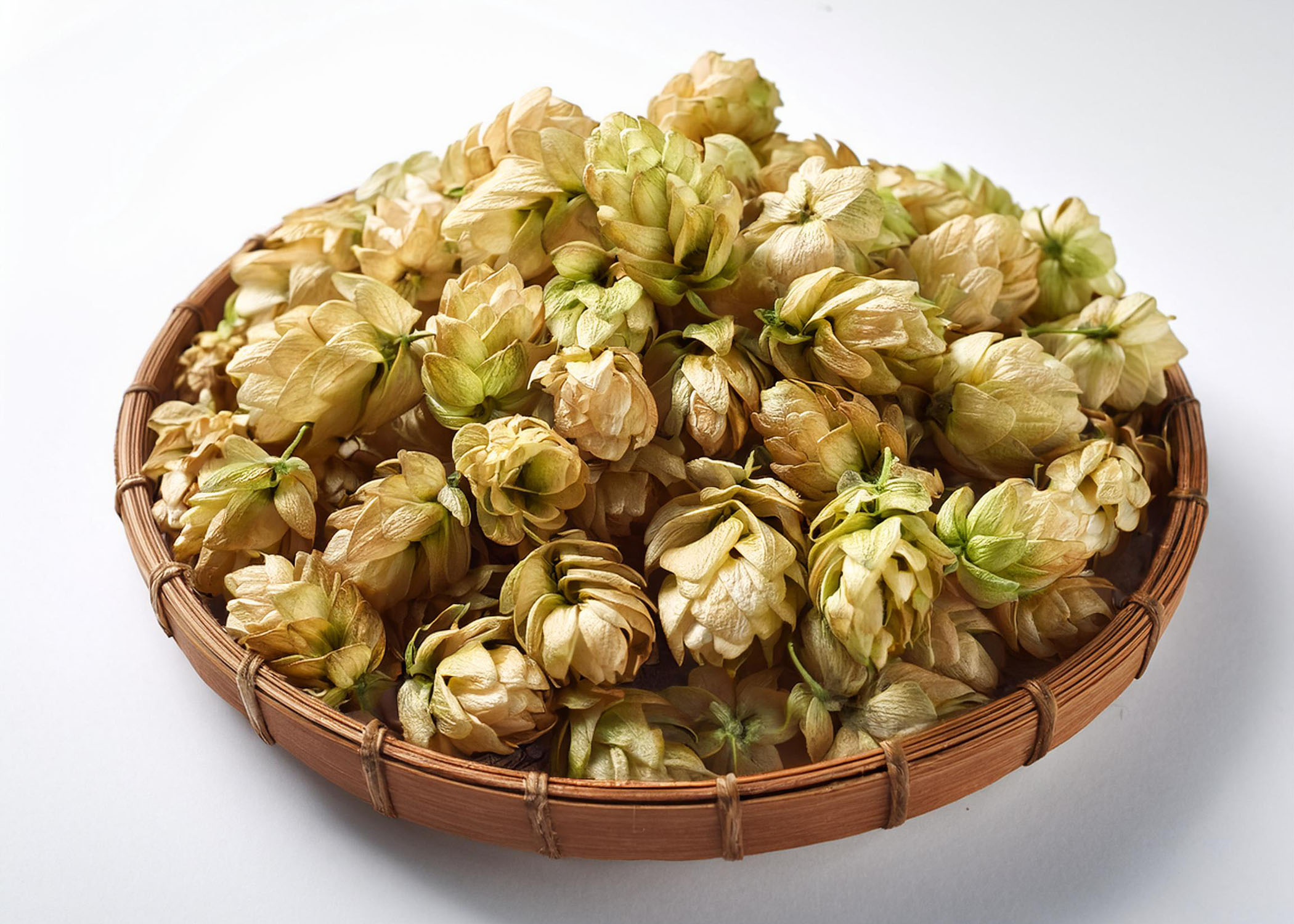Botanical Name: Humulus lupulus
Hops are the cone-shaped flowers of the hop plant, a vigorous, climbing perennial vine that is native to Europe, North America, and Asia. Hops have been cultivated for centuries, primarily for their role in brewing beer, where they provide both flavor and preservation. The use of hops in brewing dates back to at least the 9th century in Europe, and by the 15th century, they had become a key ingredient in most beer production.
The hop flowers, often referred to as hop cones, are prized for their bittering, flavoring, and aromatic qualities. Hops contribute bitterness to beer, which helps to balance out the sweetness of the malt and creates a more complex, enjoyable flavor. Beyond bitterness, hops also impart a variety of flavors and aromas to beer, ranging from floral, citrus, and pine notes to herbal, spicy, and earthy tones, depending on the variety of hops used and how they are incorporated during the brewing process.
There are many different types of hops, each offering a unique profile. Some of the most well-known varieties include Cascade, known for its floral and citrusy notes; Saaz, which has a mild and earthy flavor; and Citra, which delivers intense tropical fruit aromas. Brewers often blend different hop varieties to achieve the desired balance of bitterness, flavor, and aroma in their beers.
In addition to flavor, hops play an essential role in the preservation of beer. They contain natural compounds called alpha acids, which act as preservatives and antimicrobial agents. These compounds help to extend the shelf life of beer by preventing the growth of unwanted bacteria and spoilage organisms, a key reason why hops became widely used in beer production centuries ago.
While hops are most famously associated with beer, their uses extend beyond brewing. The young shoots of the hop plant are sometimes harvested and eaten like asparagus, while the flowers have been used in traditional herbal remedies. In recent years, the craft beer movement has brought renewed attention to hops, with many brewers experimenting with new hop varieties and techniques to create innovative and flavorful beers.

